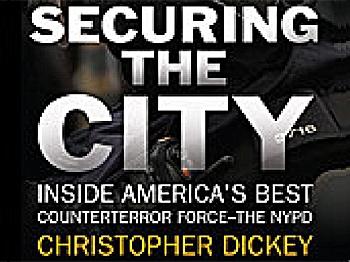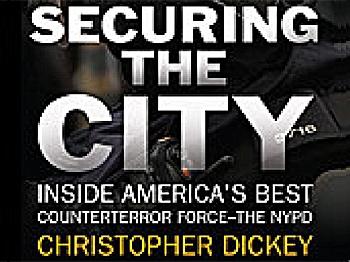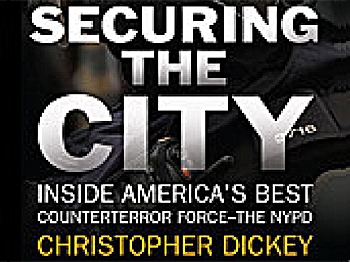New York City is one of the safest places to be in the post-9/11 world, believe it or not. Just look at the foiled terrorist plot on May 20 uncovered through a joint NYPD-FBI sting operation. Homegrown terrorists wanted to use explosives to blow up two synagogues. They had surface-to-air missiles that they attempted to use at Stewart Air Force Base. But instead of getting their wish of punishing Americans, they got booked by police for their insidious plot.
The reason these and other terrorists have not attacked New York since 9/11 can be found in journalist Christopher Dickey’s new book, Securing the City: Inside America’s Best Counterterrorism Force—the NYPD.
Through meticulous research and exhaustive interviews, Dickey, who is Paris Bureau Chief and Middle East Regional Editor for Newsweek, explains how New York City Police Commissioner Raymond Kelly and NYPD counterterrorism division head David Cohen created an elite counterterrorism force from among the ranks of the NYPD.
In the aftermath of 9/11, the bureaucracy of the CIA, FBI, DHS, DIA, and NSA (the “three-letter guys,” as police call them) proved to have cumbersome processes for warding off future attacks. Kelly was of this opinion, and after being reinstated as New York Police Department Commissioner in 2002, he found NYPD cops who could go inside the world of potential terrorists—in New York and cities around the world. The road to creating that elite force and the impact on public security since is described in Dickey’s book.
The reason these and other terrorists have not attacked New York since 9/11 can be found in journalist Christopher Dickey’s new book, Securing the City: Inside America’s Best Counterterrorism Force—the NYPD.
Through meticulous research and exhaustive interviews, Dickey, who is Paris Bureau Chief and Middle East Regional Editor for Newsweek, explains how New York City Police Commissioner Raymond Kelly and NYPD counterterrorism division head David Cohen created an elite counterterrorism force from among the ranks of the NYPD.
In the aftermath of 9/11, the bureaucracy of the CIA, FBI, DHS, DIA, and NSA (the “three-letter guys,” as police call them) proved to have cumbersome processes for warding off future attacks. Kelly was of this opinion, and after being reinstated as New York Police Department Commissioner in 2002, he found NYPD cops who could go inside the world of potential terrorists—in New York and cities around the world. The road to creating that elite force and the impact on public security since is described in Dickey’s book.







